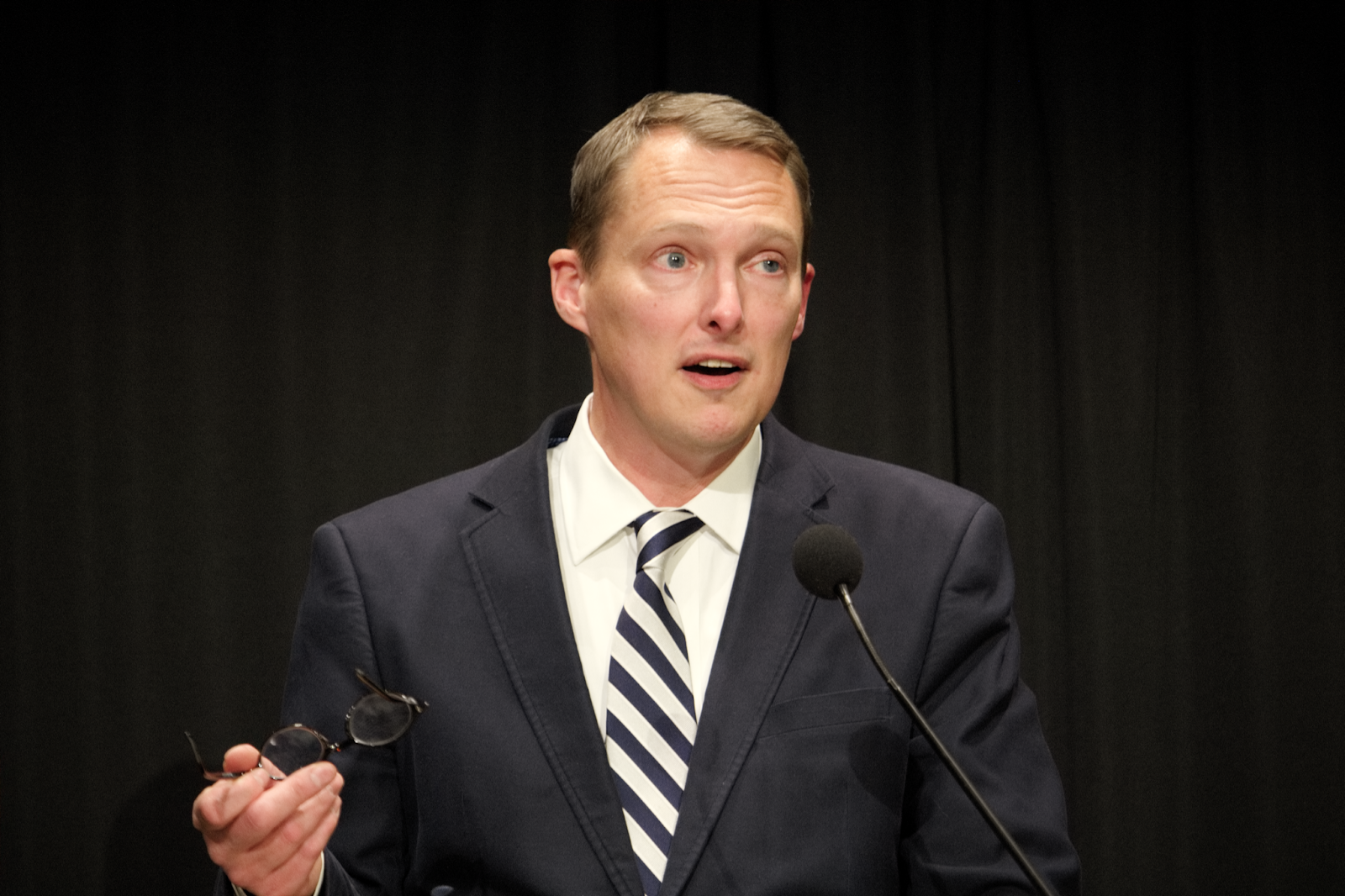Barton Swaim is an editorial writer and book reviewer at the Wall Street Journal. His time as a speechwriter for South Carolina Gov. Mark Sanford is the subject of his memoir “The Speechwriter: A Short Education in Politics.” He is this semester’s Eugene C. Pulliam Distinguished Visiting Fellow in Journalism and just finished teaching a one-credit course on objectivity in journalism.
How did you get into opinion journalism?
I got in through pitching book reviews to the Weekly Standard and the Times Literary Supplement, and eventually the Wall Street Journal. Believe it or not, editors are always looking for someone who can review a book.
Your education includes attending a seminary and earning a doctorate in English literature from the University of Edinburgh in Scotland. How has this schooling affected your approach to writing?
My seminary education gave me a philosophical grounding and introduced me to a lot of concepts and ancient texts that I rely on all the time. It shaped my thinking in basically every way. My education in English didn’t shape me as much, but it introduced me to a lot of a lot of classic texts. I also traveled overseas to do the doctorate, and living abroad itself was more the education than the degree.
You’ve said speechwriting for South Carolina Gov. Mark Sanford was in many ways a difficult job. What advice do you have for people who may find themselves in challenging professional situations?
Try not to be overawed by political power and the people who hold it in. They don’t want, or at least they don’t need, people who are going to idolize them. They need people who can push back at them when they’re wrong, and, if it’s speechwriting, stop them from making garbage-sounding arguments. Be ready to stand up for yourself. I was not as ready as I should have been, but it would have helped. It’s better, actually, for the person you’re working for if you can stand up for yourself when appropriate.
What’s a good book you reviewed recently?
“George Washington: The Political Rise of America’s Founding Father” by David O. Stewart. It’s a brilliantly done biography about George Washington as a politician. There have been thousands of biographies of Washington, but each one has its own contribution. This one brought out the ways in which Washington used his strengths and his ability to command loyalty in others. It was beautifully written as well, and just a pleasure to read.
Have you ever changed your mind on an important subject?
I used to put too much trust in politicians, and I realized that was wrong. Now, on the face of it, that sounds obvious. You shouldn’t trust politicians, and yet we all do — when one disgraces himself, we’re surprised and shocked. But we shouldn’t be shocked. It’s healthier to be skeptical than to put too much stock in a politician’s strength and virtue. When you’re skeptical, you’re able to assess them in a more realistic and helpful way than when you go along with whatever they say.
What does the future of journalism look like?
In the current media and political class, no one seems to be capable of acknowledging any kind of fault. They’re completely incapable of self-criticism, but eventually they’re going to die and retire and new journalists are going to take their place. And those people will have watched the disgrace that is American journalism in the 2020s, and they’re going to do things differently, I think even on the left. Eventually there may be a desire for some kind of healthy change. Surely young people can see that this profession needs to be changed in fundamental ways, even if they’re not conservative.


